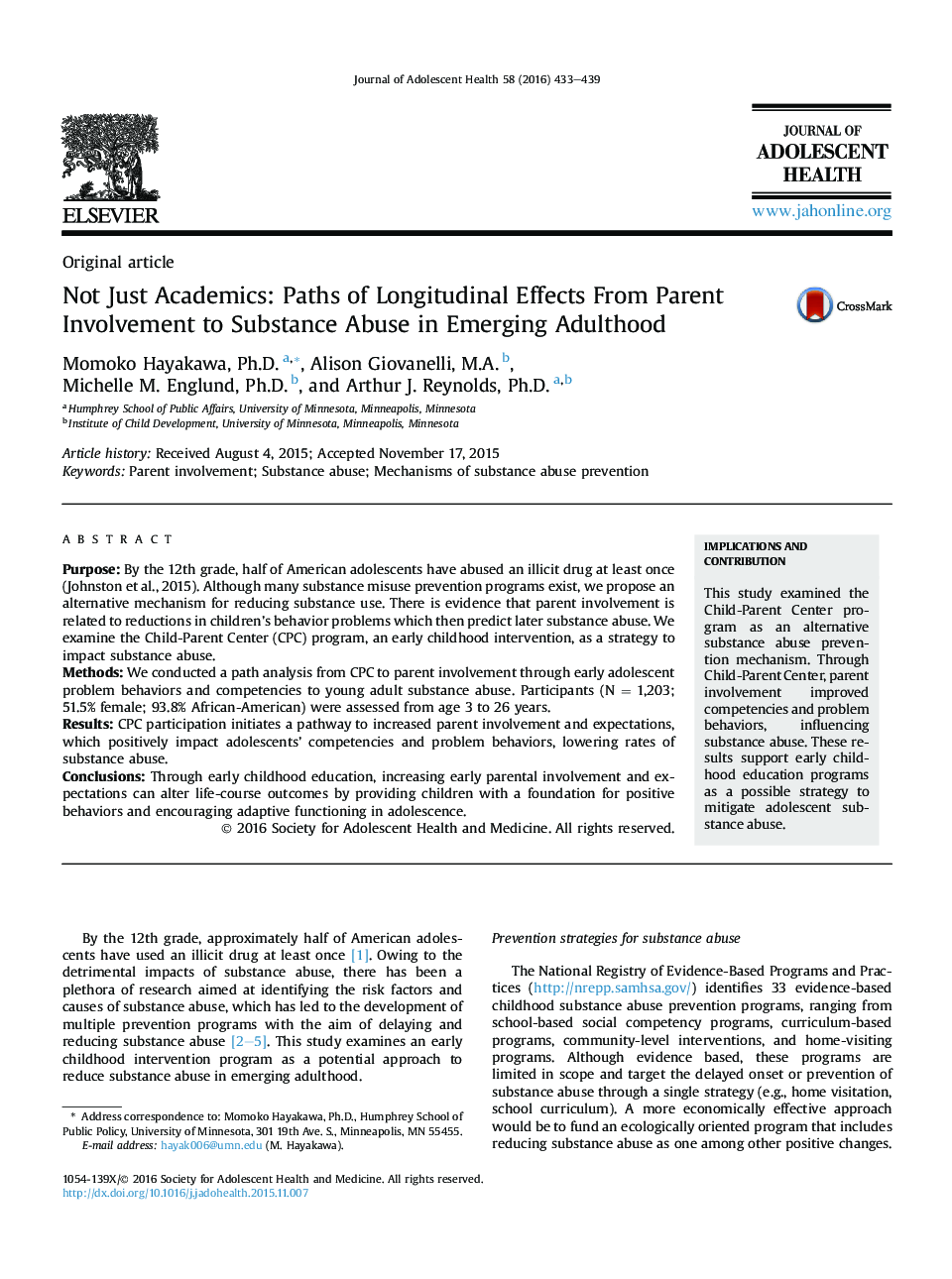| Article ID | Journal | Published Year | Pages | File Type |
|---|---|---|---|---|
| 1078200 | Journal of Adolescent Health | 2016 | 7 Pages |
PurposeBy the 12th grade, half of American adolescents have abused an illicit drug at least once (Johnston et al., 2015). Although many substance misuse prevention programs exist, we propose an alternative mechanism for reducing substance use. There is evidence that parent involvement is related to reductions in children's behavior problems which then predict later substance abuse. We examine the Child-Parent Center (CPC) program, an early childhood intervention, as a strategy to impact substance abuse.MethodsWe conducted a path analysis from CPC to parent involvement through early adolescent problem behaviors and competencies to young adult substance abuse. Participants (N = 1,203; 51.5% female; 93.8% African-American) were assessed from age 3 to 26 years.ResultsCPC participation initiates a pathway to increased parent involvement and expectations, which positively impact adolescents' competencies and problem behaviors, lowering rates of substance abuse.ConclusionsThrough early childhood education, increasing early parental involvement and expectations can alter life-course outcomes by providing children with a foundation for positive behaviors and encouraging adaptive functioning in adolescence.
